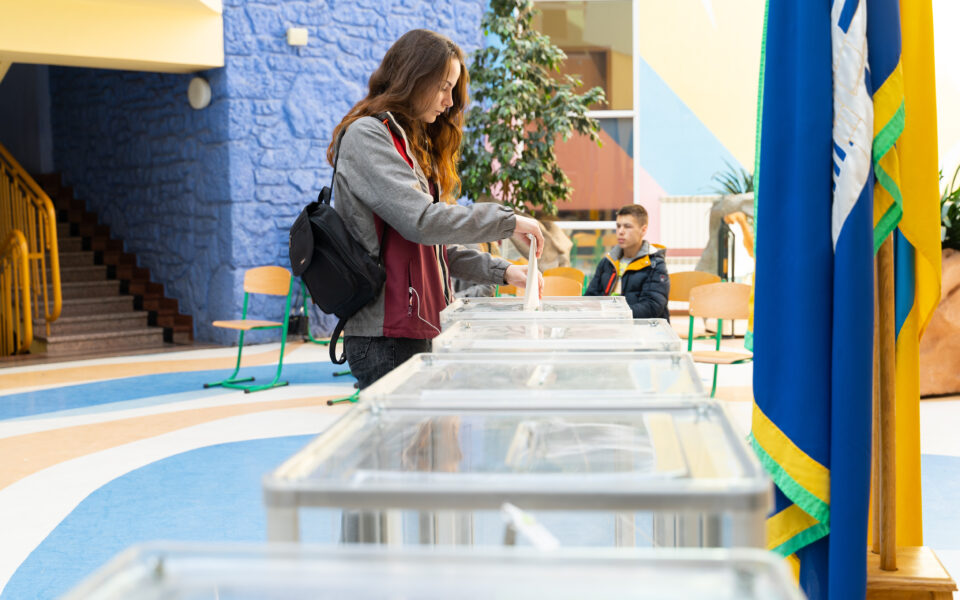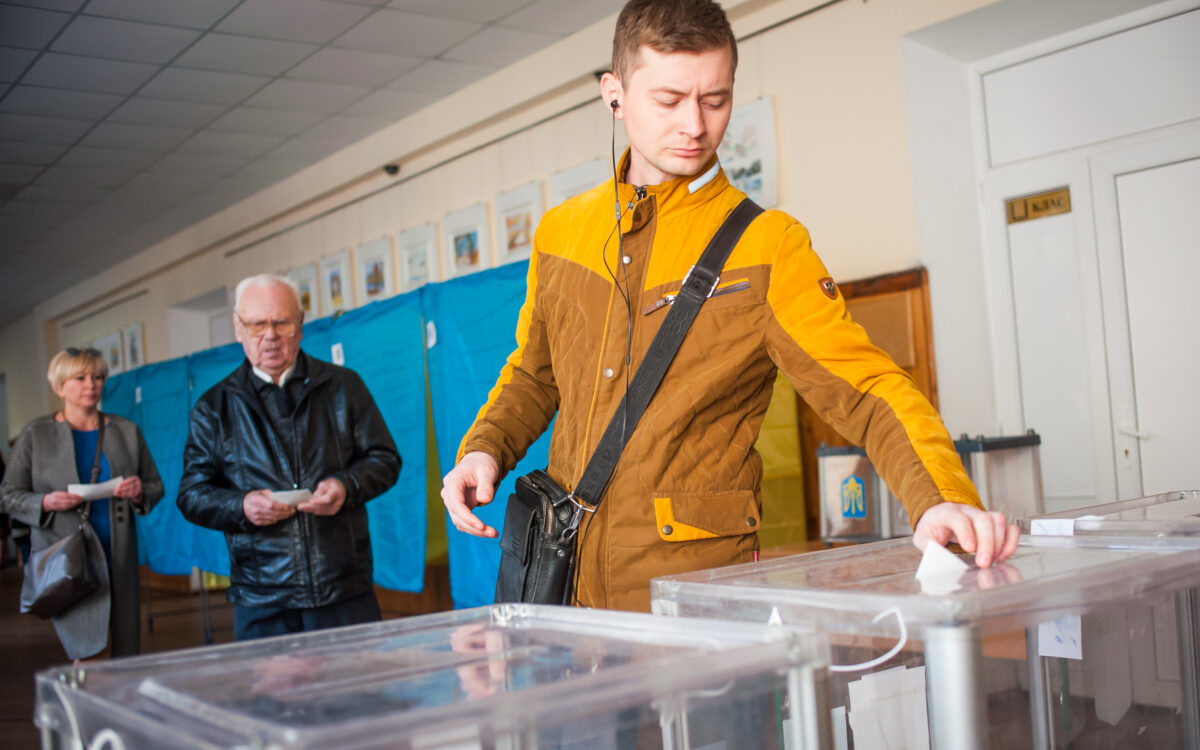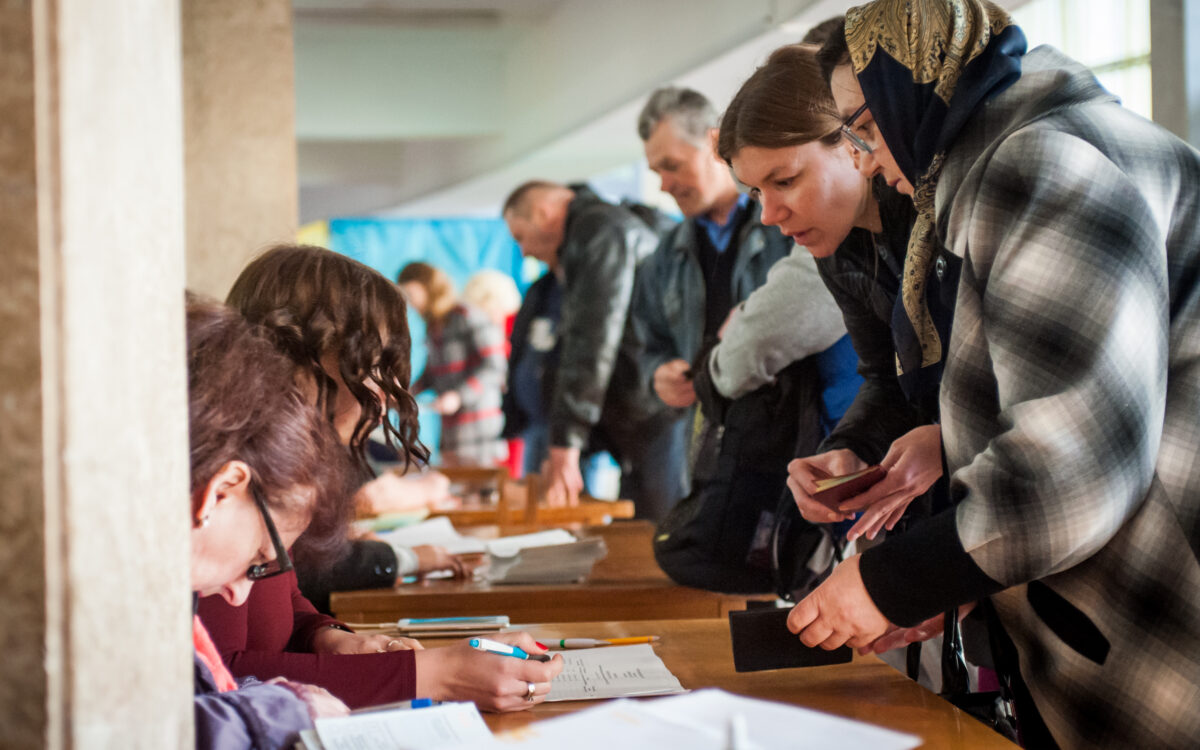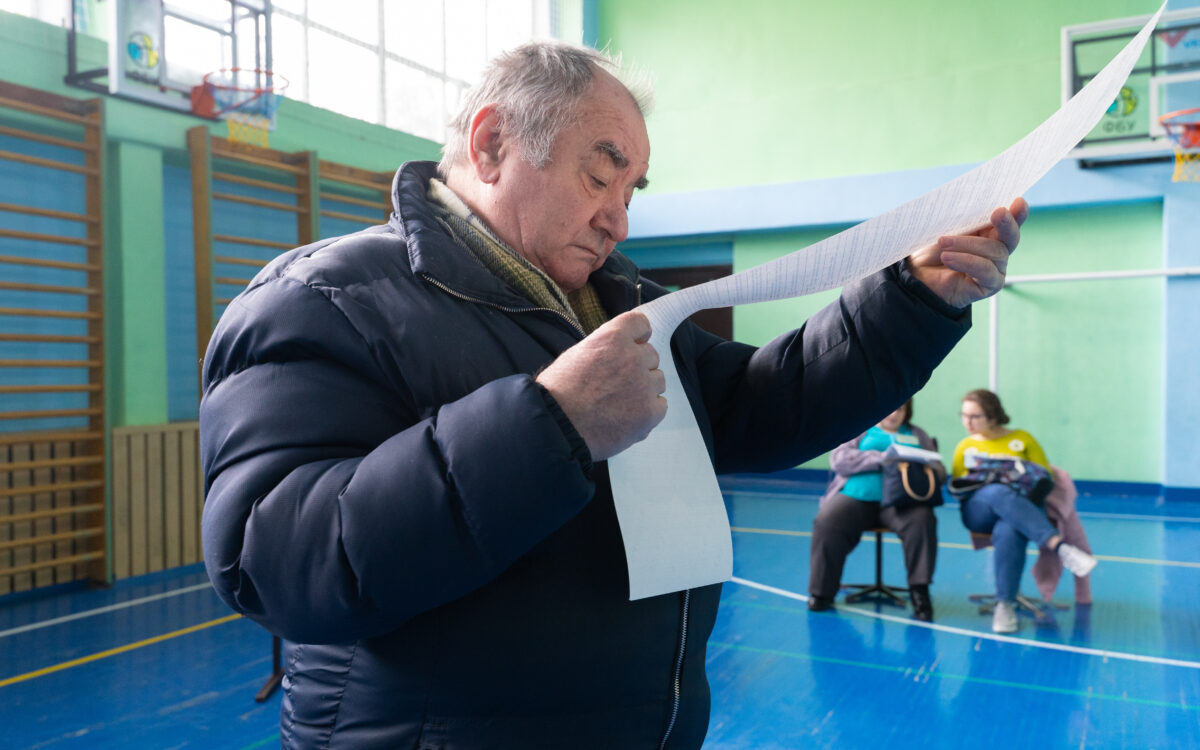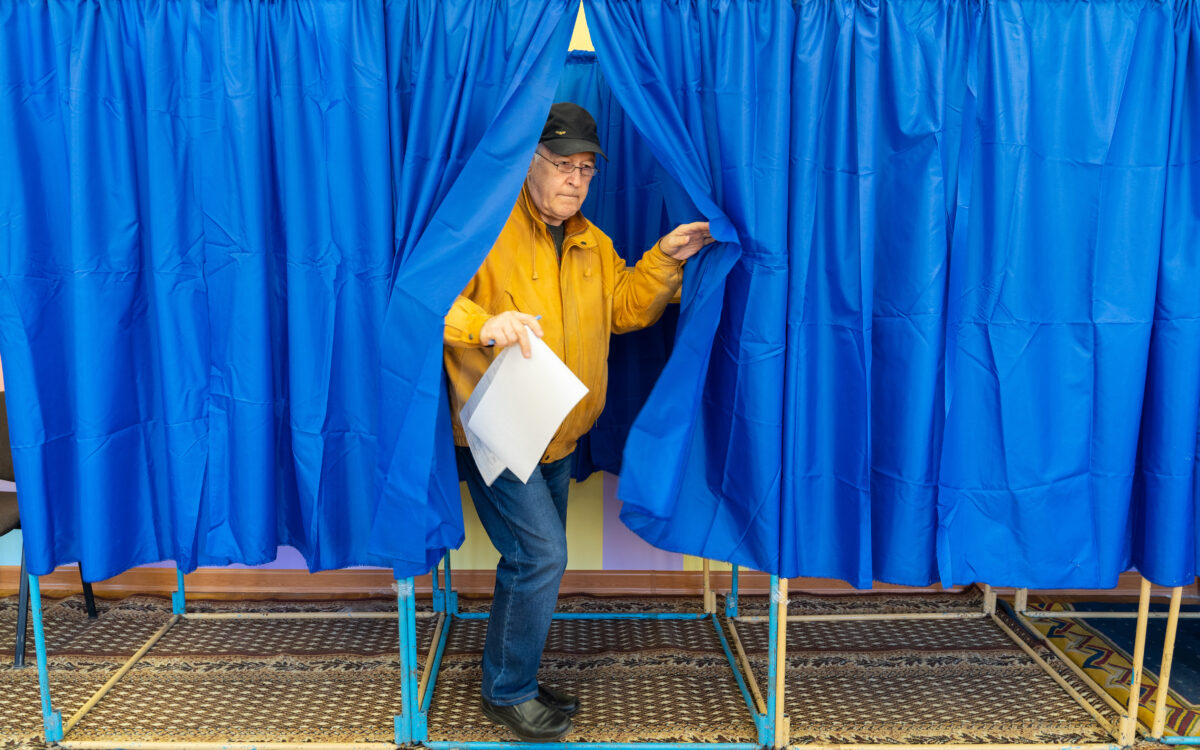
Central Election Commission Advances Gender Equality in Elections Through BRIDGE Workshop
23.07.2024
Democracy and Elections Digest #210 (August 3 – 16, 2024)
19.08.2024Rada Votes to Prolong Martial Law. On July 23, the Verkhovna Rada voted to continue martial law in Ukraine for another 90 days. This is the twelfth time martial law has been extended in Ukraine since Russia’s full-scale invasion. It will expire on November 9.
The Election Code and the Law of Ukraine on Martial Law Regime preclude administering elections during martial law. While elections cannot be held under martial law, IFES believes the hard work of preparing for future, free, and fair post-war elections must continue.
Zelenskyy Talks Elections in His BBC Interview. On July 19, BBC broadcast an interview with President Volodymyr Zelenskyy, which was recorded during his visit to the United Kingdom. The full interview is available in Ukrainian on the BBC Ukraine YouTube channel.
Answering a journalist’s question about whether Zelenskyy would remain in office if the war lasted another ten years, he said Ukraine would have to find new tools to hold elections if the war drags on.
“No one will agree to a war that will go on for another ten years or many years,” he said. “It’s very difficult, it’s difficult for the world and for everyone. And I think it’s impossible, really. The second story is that there will be many victims. There are already so many, and there will be many more, it cannot be allowed. Third, I would gladly hold elections if it were possible. And if the war drags on, we will do everything we can to keep it from dragging on. But if it does drag on, we will have to find a solution. I don’t know what it is yet.”
He noted the Constitution cannot be changed during martial law; nor can elections be administered. “How can you hold democratic elections in the trenches, you need to have observers. No observers will come to the trenches. We have people in the occupied territories. So, they will not vote, because how will they vote? Who will control this process? And we have more than seven million people abroad. And how can we ensure their voting?”
The President emphasized that people fighting on the frontline for democracy will not have a democratic choice; however, “if the war drags on, we will have to look for tools anyway.”
Civil Network OPORA Holds Political Finance Discussion. On July 30, Civil Network OPORA organized a discussion about changes to laws on political finance accountability. Event participants included representatives of the National Agency on Corruption Prevention (NACP), the Central Election Commission (CEC), the National Police, international organizations, and Ukrainian political parties.
OPORA shared the results of a survey on citizens’ views about political party financing and insights from interviews with Ukrainian experts and Government officials about legislative reform. Conducted by the Razumkov Center with IFES Ukraine’s support, the survey highlighted the need to educate the public on best political financing practices and check illegal practices by political parties. The survey found that 31 percent of respondents knew about illegal financing of rallies and assemblies by political forces. This high awareness about campaign finance abuses negatively impacts citizens’ views of political party activities, demonstrating the need for more legislative reforms and stronger law enforcement.
Event participants also discussed recommendations to improve political parties’ accountability for reporting violations and illegal contributions. They include introducing criminal liability for making or receiving a contribution that exceeds the maximum legal amount, making a contribution in cash, restricting contributions through third parties to support a candidate or a political party, and regulating so-called “sponsorship” in the Election Code. These recommendations, developed through long-term discussions among representatives of the NACP, the CEC, and Members of Parliament, will form a basis for the final draft of legislative amendments.
NDI Poll: As Costs of War Mount, Ukrainian Demands for Inclusive Democracy Remain Strong. The National Democratic Institute and the Kyiv International Institute for Sociology recently conducted meetings with political, civic, and other partners to share its May 2024 public opinion poll in Ukraine. The survey results tell a story of sacrifice and resolve and Ukrainians’ commitment to both democratic values and Euro-Atlantic integration. The percentage of respondents wanting Ukraine to become a fully functioning democracy remains consistently high at 93 percent.
Ninety percent want Ukraine to become a member of the European Union (EU) and 84 percent support North Atlantic Treaty Organization (NATO) membership. The EU result has been steady and the NATO result is up from 73 percent over 2022. However, Ukrainians recognize membership application in both organizations will not be a short process with 70 percent predicting that it will take at least two years to become a member of both the EU and NATO.
Trust in the government’s role remains relatively high compared to surveys conducted before the full-scale Russian invasion. In December 2021, 18 percent of respondents reported trusting President Zelenskyy whose numbers then surged after the full-scale invasion and remain solid at 45 percent.
Meanwhile, 30 percent of Ukrainians trust the Central Election Commission; but, trust in the Government and the Verkhovna Rada is significantly lower – currently at 20 and 11 percent, respectively.
With elections currently delayed due to Russia’s war and martial law extension, respondents appear to accept prolonged mandates for elected officials: 72 percent report that elections should be administered only after the war’s conclusion.
The poll measured Ukrainians’ attitudes toward political parties. Forty-eight percent have a negative attitude toward the governing Servant of the People political party; 32 percent are neutral, and 13 percent are positive. 57 percent of respondents expressed a negative view toward Batkivshchyna; 31 percent are neutral, and nine percent are positive. Regarding the banned Opposition Platform — For Life political party, 71 percent of respondents have a negative attitude; 19 percent are neutral, and four percent are positive.
Twenty-three percent of poll participants are positive toward the European Solidarity party, and 47 percent of Ukrainians are negative. The UDAR party was negatively assessed by 34 percent of respondents and positively by 18 percent.
The poll sampled opinions about the hypothetical political party led by Serhiy Prytula. Twenty-eight percent are positively inclined toward his party, and an equal percentage are negative.
The survey was conducted from May 8 to 25. A total of 2,508 adult residents of Ukraine were interviewed by telephone using randomly generated mobile numbers. The sample did not include citizens in temporarily occupied territories as of February 23, 2022 – Crimea and occupied areas of the Donetsk and Luhansk regions. However, respondents living in those territories occupied after February 24, 2022, were interviewed if they felt safe to answer questions. The margin of error for the national sample does not exceed 2.2 percent.
CEC Commissioner Interview with Ukrainian Radio on Post-War Elections. On July 30, Ukrainian Radio broadcast an interview with CEC Commissioner Viktoria Hlushchenko and Anton Hrushetskyi, Executive Director of the Kyiv International Institute of Sociology. The interview covered the impact of the war on Ukrainians’ political views, the challenges associated with organizing elections after the war, and future electoral preparations.
Commissioner Hlushchenko noted that ensuring the right to vote for internally displaced persons (IDPs) and refugees is a challenge. In addition, the organization of post-war elections would require establishing additional polling stations, especially abroad. She said there are only 102 polling stations for Ukrainian citizens living outside the country; the Ministry of Foreign Affairs’ capacity allows for an additional 100 polling stations, but there is a demand for more. Because of this and other challenges, the CEC believes that elections should be administered no earlier than six months after the conclusion of martial law.
Mr. Hrushetskyi noted that most Ukrainians oppose elections under martial law.
“Consistently, about 70 percent of Ukrainians oppose holding elections during the war,” he said. “They believe the president should fulfill his powers until the end of martial law.”
Mr. Hrushetskyi noted that 20 to 25 percent of citizens believe elections could be held during the war. However, he said when you talk to these people in more detail, they realize all the problems that arise. More than 60 percent do not want online elections, seeing them as potentially corrupt.
Civil Network OPORA Shares Policy Brief Following Public Summit – “Security Guarantees for Ukrainian Democracy in Times of War.” On June 27, a public summit took place in Kyiv organized by Civil Network OPORA titled, “Security Guarantees for Ukrainian Democracy in Times of War.” The summit’s objective is to provide an expert forum for a high-level political dialogue about Ukrainian democracy in wartime and efficient means to achieve victory. The event was attended by over 90 diplomats, Members of Parliament, and experts from international organizations and national think tanks.
Civil Network OPORA produced a policy brief describing key points of discussion, which were combined into seven thematic blocks: Democracy, European integration, Ukraine’s membership in NATO, social cohesion, security, good governance, energy, and international justice.
Notably, participants agreed that holding elections in Ukraine is not possible due to Russia’s ongoing aggression. Still, none of the event participants question the President’s legitimacy and Verkhovna Rada’s legitimacy.
It was agreed that organizing the electoral process requires adequate security and conditions for free political campaigning, which is impossible during Russia’s full-scale war. Participants agreed the essence of democracy is not limited to elections because they also take place in authoritarian and undemocratic countries such as Russia and North Korea.
Experts said democracy is a much broader concept than just holding elections. It includes independent political institutions, strong local government, freedom of speech, robust civil society, and honest public dialogue — all the more important to Ukrainian citizens during Russia’s war.


